How to Write a Resume to Gain Skilled Trade Job Placement
A well written resume is essential when looking for a job. Whether you are searching through online job boards or working with a staffing company, your resume needs to be compelling and noteworthy. So, how do you accomplish this? “When job markets are competitive it helps to have a resume that works for you and not against you,” says Aaron Taylor, LEAD National managing partner. Aaron, who has been in the skilled trades staffing industry for over 20 years, offers the following 10 tips to help you create an effective resume to land your next job.
Customize Your Resume
Your resume should include information and examples related to the job for which you are applying. For example, if you are applying for a pipe welder job, you could include your experience as a welder.
Emphasize Your Industry
A good place to emphasize your industry is in a summary statement if you choose to include one. An example would be, “…an experienced welder with two years of supervising a team.”
Also consider using keywords associated with your industry throughout the resume to show your knowledge and gain the attention of the hiring manager or recruiter.
Highlight a Variety of Experience
Do not list every experience or job you have had unless you are just out of school or new to the workforce. The experiences of each job you list should relate to the specific job or type of position you are interested in. Providing a laundry list of experiences will raise a red flag to the hiring manager, indicating you are not being thoughtful in the creation of your resume.
Ditch the Objective Statement
Follow the resume trends and stay away from writing an old-fashioned resume. Objective statements are dated and could indicate you haven’t updated your resume. The objective statement can be totally removed, or you can choose to replace your objective statement with a summary statement or a skills table, says Aaron. A summary statement would highlight your background and accomplishments whereas a skills table highlights your hard or trade skills using a bulleted list like this:
- Blueprint Reading
- Welding
- Piping
- Hydraulics
- Torching
- Journeyman
Add Statistics
Statistics are king! Hiring managers love to see facts and figures related to your success. Be sure to include the number of employees you supervised, or the number of team members you worked with on a successful project. Include percentages such as ‘you increased productivity by 62%’, or ‘your company saw a 43% decrease in complaints because of an idea you put forth’.
Experience Before Education
If you have been in the workforce for more than a year, your experience should be listed before your education. A student or recent graduate who has little work experience, should place their education before experience. Plus, include your GPA is 3.5 or higher and any education honors.
Include Certifications
Certifications are proof of your knowledge in a specific area, and often push you to the top of the interview pile. Tony Rodriquez, LEAD National, head of national recruiting and training says, “When I’m hiring a pipe welder and I see they’ve listed a welding certificate on their resume, I am more confident that the potential candidate is capable and skilled to perform the job.”
Name Your Resume Document
Ready to save your resume and send it off or submit it to your staffing recruiter? Make sure you save it as “Steve Jones Resume” instead of “Resume.” It helps the hiring manager or recruiter and shows you are responsible and considerate.
Universal File Format Type
Most applicant tracking systems process Microsoft Word documents and portable document format (PDF) files with no issues. However, sending picture, Publisher, PowerPoint file types may not translate. The best way to ensure your resume can be read is to provide a user-friendly formatted document. “If we struggle to open a file, chances are we aren’t going to be reviewing it or our applicant tracking system won’t capture the information correctly. Word or PDF is the most ideal format and the easiest to upload into our system,” says Aaron.
Review Before You Submit Your Resume
“The best advice I can give is to review your resume before you submit it for application,” says Aaron. The most important thing to remember when creating your resume is to include your contact information, including name, email, phone, home address (at least a zip code). Aaron explains LEAD’s applicant tracking system allows us to look at candidates relative to the location of the projects we are hiring to fill and if we don’t have at least their zip codes they may be missing out on job opportunities near their residence.
Are you ready to find your next job? Consider LEAD National when looking for temporary or permanent placement in skilled trades. Following the resume tips provided by the LEAD National team will get you one step closer to being hired! Call us today.


